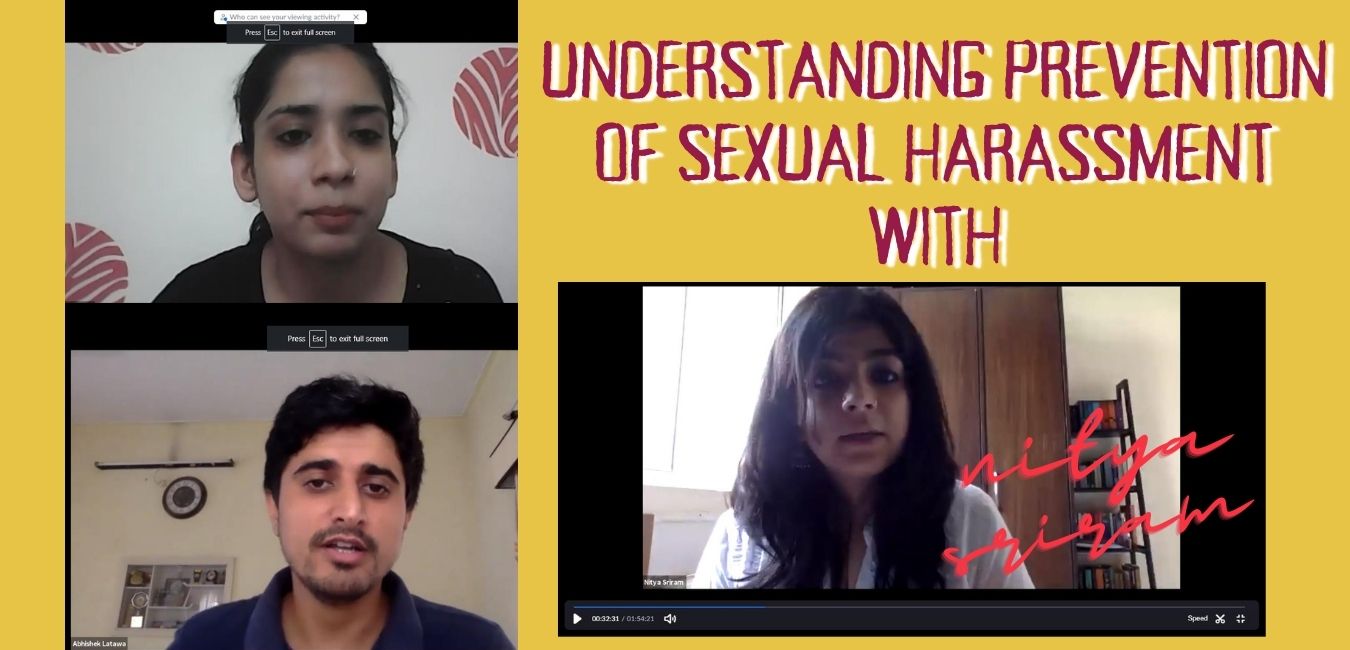To create a gender-sensitive environment and approach to learning, PRIA sensitizes all learners and participants on the issues of gender in the context of personal lives and professional roles, especially on prevention and redressal of sexual harassment at workplace.
As part of the orientation to the fellowship programme, fellows were enrolled into an online training capsule on ‘Understanding the Sexual Harassment of Women at Workplace (Prevention, Prohibition and Redressal) Act, 2013’ offered by PRIA International Academy. Before attending this session, Fellows had completed the online modules on Prevention of Sexual Harassment at Workplace offered by PRIA International Academy.
The session was conducted by Nitya Sriram and Samiksha Jha of the Martha Farrell Foundation. It facilitated deeper understanding of sexual harassment and its prevention, prohibition and redressal as per the 2013 Act.

The session started with a brief sharing of reflections by fellows that they had after completing the course.
‘I have worked with an organisation before, but I was unaware if the SHW at workplace Act existed. Nothing happened to me! But, one of my friends was molested at their workplace and had I known about such an act, I could have helped her.’
‘I have worked both in the private and public sector. I know that such institutions and mechanisms do exist, but they only exist on paper. Even government organisations do not have such committees in place, especially at the district levels, or if they have, they are not functional. Also, a lot of private institutions do not know that such mechanisms are mandatory. Such institutions need to be promoted, and organisations need to be made aware about such mechanisms.’
‘Students especially in their final years, who are about to enter the job sector, need to be made aware about such mechanisms. So, that if something like this happens they know what rights they have. College institutions should take responsibility. Employers should talk about this during orientation programs.’
After a thoughtful sharing of reflections and experiences, the facilitators tried addressing the questions and comments that were raised by the participants. The facilitators began with demystifying the term ‘Sexual Harassment’, and later helped fellows in understanding the technicalities of the law. Fellows also raised the concern of how it becomes uncomfortable to share and file a complaint if you are harassed or molested at your workplace. This discussion was followed by sharing history of the Sexual Harassment of Women at Workplace Act and the incident of Bhanwari Devi. The session was concluded by discussing the forms of sexual harassment and understanding the procedures of filing a complaint. YnD fellows were also encouraged to have conversations about this Act with their friends, family, teachers, and employers to ensure a safe workplace for everyone.